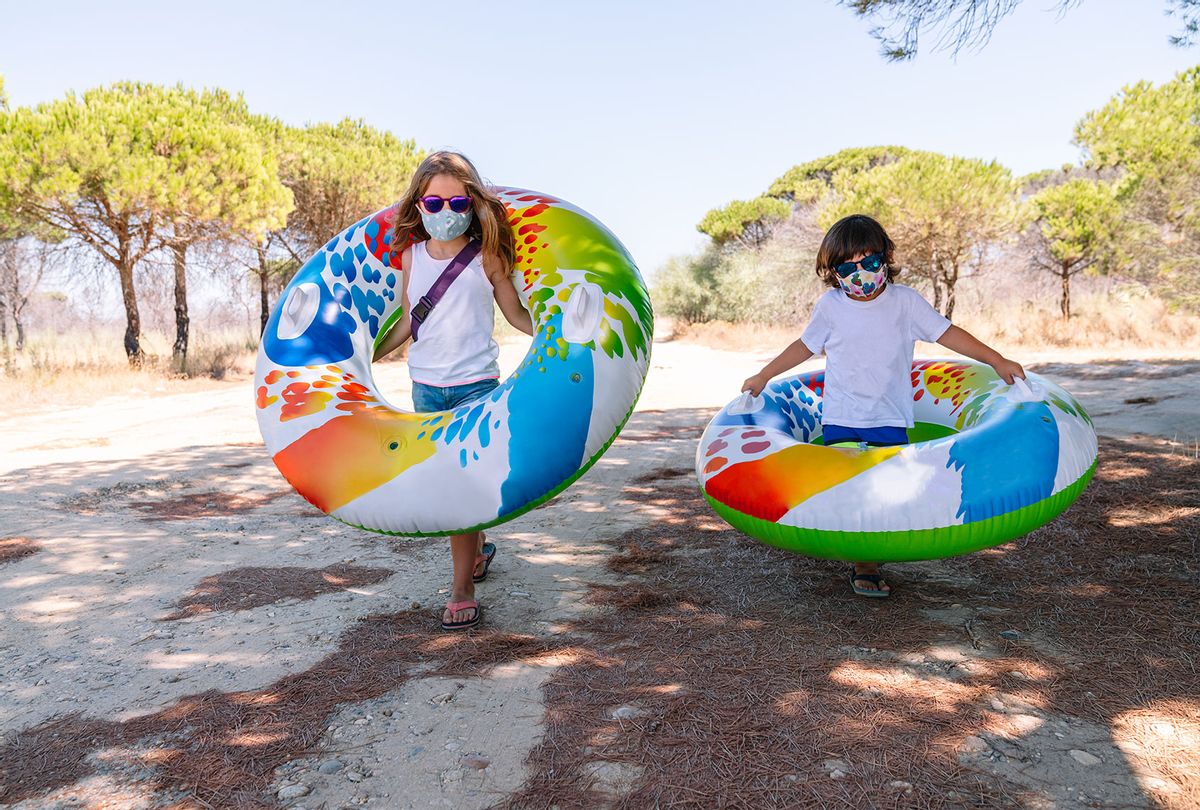Summer camp is a go this year, but thanks to new guidelines by the Centers for Disease Control and Prevention (CDC) the experience will be adjusted. The hope is that these extra precautions with a largely unvaccinated population will prevent outbreaks at summer camps — unlike what happened last year.
Last summer, an overnight summer camp in Georgia was the center of a major outbreak. On the second day of camp, one camper tested positive for COVID-19 which led to nearly 76% of the 344 campers getting infected with the coronavirus. Staff was required to wear masks, but the campers weren't required to do so. The camp also didn't open windows and doors to increase circulation, and 15 campers occupied the overnight cabins.
To guard against such conditions, on Saturday the CDC released updated guidance for daily and overnight summer camps to limit the spread of the coronavirus. Even though millions of adults are receiving the COVID-19 vaccine each day, currently there are no vaccines available for use in the U.S. for children under the age of 16. According to the updated guidelines, children must stay at least 3 feet apart from each other most of the time at camp, which is aligned with the recommended guidance for schools too. When children are eating and drinking, the CDC recommends children maintain at least 6 feet of distance from each other.
"As feasible, have children and staff eat meals and snacks outdoors or in well-ventilated spaces while maintaining physical distance as much as possible," the CDC explains. "Campers should store masks in a space designated for each child that is separate from others when not being worn (for example, in individual, labeled containers, bags, or cubbies) and put their mask back on when not eating or drinking."
In regards to mask-wearing, the CDC states that all staff, visitors and campers should wear masks with a few exceptions — campers who are younger than the age of two don't have to wear masks. Activities like eating, drinking or swimming, won't require masks either. Most activities are recommended to take place outside, but if the weather doesn't allow it the CDC states that windows and doors should be left open to well-ventilate the space.
"Bringing fresh, outdoor air into your facility helps keep virus particles from concentrating inside," the CDC states. "Open windows and doors when possible, use fans to increase the effectiveness of open windows, and decrease occupancy in areas where outdoor ventilation cannot be increased."
The CDC provided additional guidance for overnight camps, specifically recommending unvaccinated campers and staff members to quarantine for two weeks before camp begins, which means maintaining a physical distancing, wearing a mask and refraining from indoor social gatherings with people outside of their household. The CDC also recommends asking staff and campers who aren't fully vaccinated to provide proof of a negative COVID-19 test taken no more than 3 days before arrival.
Want more health and science stories in your inbox? Subscribe to Salon's weekly newsletter The Vulgar Scientist.
"Campers and staff should be screened for COVID-19 symptoms, as well as a known recent close contact with a confirmed COVID case, when entering the camp (or before boarding camp transportation)," the CDC states. "Upon arrival at camp, campers should be assigned to cohorts that will remain together for the entire camp session without mixing with other campers and staff in close contact circumstances."
This summer, the CDC is recommended that campers who bunk together in a cabin act as if they are a pod or "household cohort." Together, they don't have to wear a mask and keep their distance. But when interacting with other campers, they should always wear a mask to keep a distance.
Upon their return home, campers and staff who are not fully vaccinated should get a COVID-19 test within three to five days after returning, and self-quarantine for one week.
As far as vaccinations are concerned for teens and school-aged children, they most likely won't be available until after this summer. As Salon previously reported, teens will likely be able to get the vaccine this fall. Elementary-aged children likely won't be eligible for vaccinations until the beginning of 2022. As far as how vaccinations will change summer camp in 2022, that remains unclear.

Shares